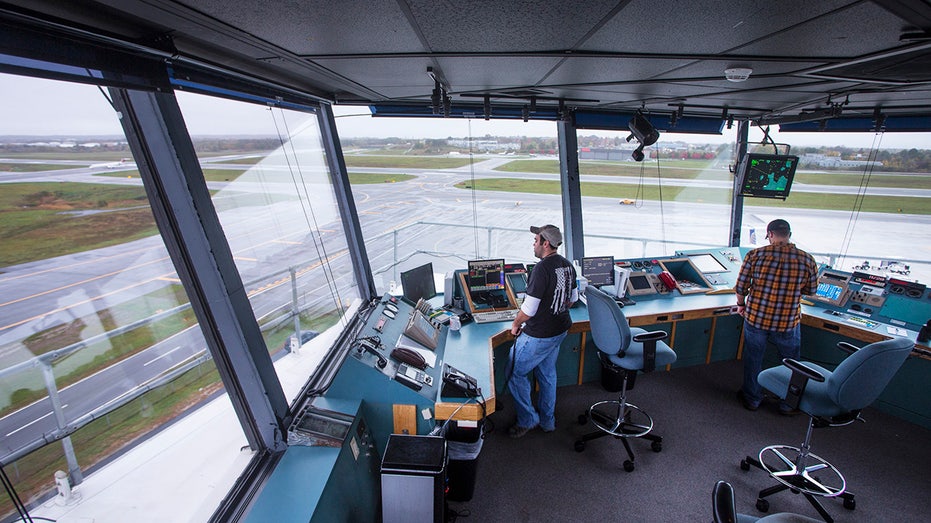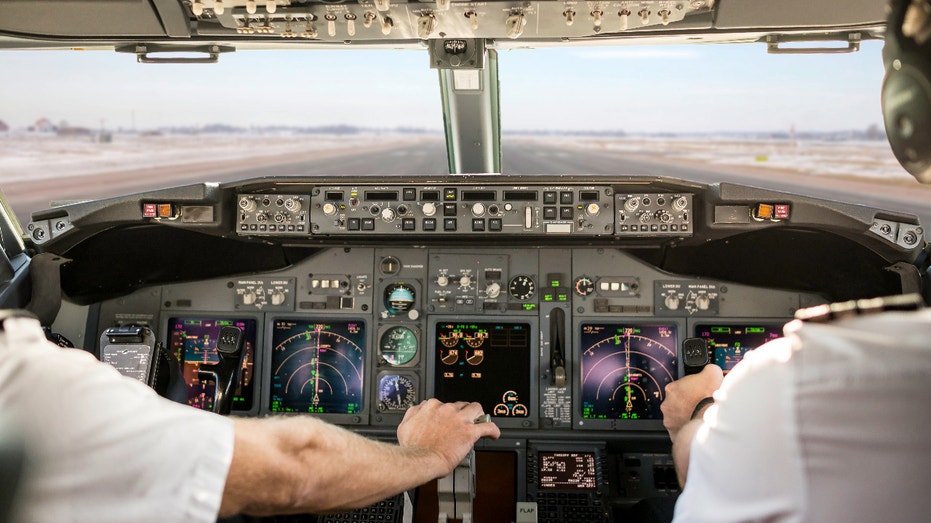FAA establishes committee to address mental health issues for pilots, air traffic controllers
The committee will have to submit recommendations to the FAA by the end of March 2024
This tech in pilot training could help staff shortages: Former FAA acting admin.
Former FAA acting administrator Dan Elwell tells ‘The Claman Countdown’ that more approved hours in a flight simulator could help streamline pilot training to help with shortages.
Federal Aviation Administration (FAA) Administrator Mike Whitaker said Tuesday the agency officially established a committee dedicated to breaking down any barriers that would keep pilots or air traffic controllers from addressing mental health issues of any kind.
The FAA first announced plans to create the Mental Health and Aviation Medical Clearances Rulemaking Committee (ARC) shortly after an off-duty Alaska Airlines pilot told law enforcement that he was having a "nervous breakdown" when he allegedly tried to shut down a plane's engine mid-flight.
Alaska Airlines Capt. Joseph Emerson, who was charged with attempted murder, also told investigators he had become depressed six months prior to the October incident, which reignited a crucial conversation regarding mental health in the industry.
PILOTS SAY THEY NEED TO PRIORITIZE THEIR MENTAL HEALTH AS PRESSURES MOUNT
Whitaker said in the announcement that a committee comprised of experts from both the aviation and medical communities will be tasked with identifying and breaking down any remaining barriers that discourage pilots and air traffic controllers from reporting and seeking care for mental health issues.

Air traffic controllers work in the control tower at Portland International Jetport on Oct. 26, 2017. (Derek Davis/Staff photographer / Getty Images)
Whitaker tweeted that this committee is a "crucial step toward safely addressing mental health stigma, and the well-being of pilots and air traffic controllers."
FAA INVESTS $121M FOR AIRPORT MODIFICATIONS TO REDUCE RISK OF RUNWAY INCURSIONS
The FAA plans to name the panel of experts soon though it didn't specify an exact date. Once a panel is named, they will be required to submit recommendations to the FAA by the end of March.
"You cannot put people under this pressure cooker, and not expect people to break," American Airlines pilot Capt. Dennis Tajer told FOX Business.

Pilots flying a Boeing 737 aircraft. ( / iStock)
While Tajer applauds the FAA for taking this step, he's imploring the agency to take action on whatever recommendations are made.
"We've seen these committees gather before," Tajer stressed. "They file a report and then a report is put on a dusty shelf and nothing happens."
Tajer added that certain rule-making committee recommendations have been sitting on the FAA desk for years, such as suggestions for pilot training.
GET FOX BUSINESS ON THE GO BY CLICKING HERE
"Just because they're doing this doesn't mean they're going to take action," he said. "With this committee being formed we say, ‘Thank you but you better do something.’"
Tajer has been very vocal about how much pressure pilots are under, especially now, and the type of consequences that can lead to over time.
The FAA, however, has noted in the past that it has been working to address these issues, such as increasing mental health training for medical examiners, supporting industry-wide research and clinical studies on pilot mental health, and hiring additional mental health professionals to expand in-house expertise and to decrease wait times for return-to-fly decisions.





















